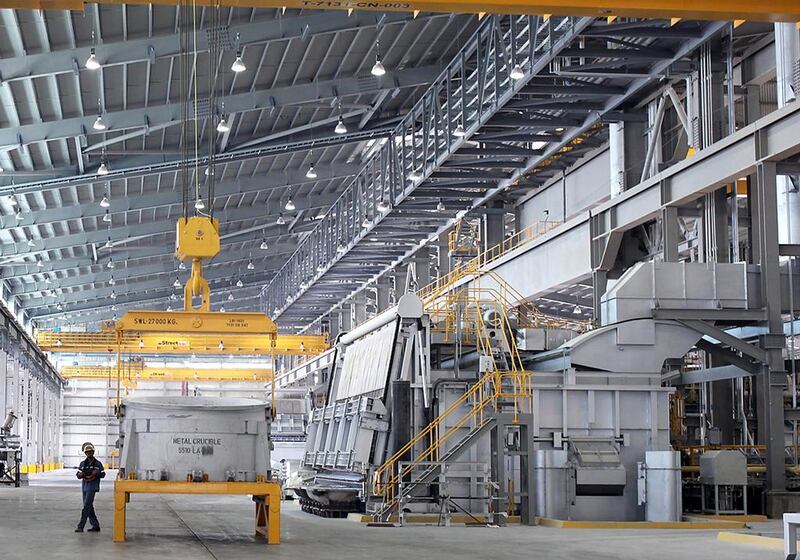Abu Dhabi’s non-oil economy grew at a compound rate of 6.9 per cent a year in the five years to 2012.
The growth lifted the share of the emirate’s economy unrelated to hydrocarbons to 48 per cent, according to the Department of Economic Development.
The emirate’s 2030 Economic Vision calls for the non-oil sector to reach 64 per cent of the economy by 2030, compared with 44 per cent in 2010.
The emirate’s economic activity unrelated to oil and gas rose to US$88.5 billion by the end of 2012, increasing its share of the total economy by 5 percentage points to 48 per cent, the department said.
The gain in the non-oil economy, which exceeded expectations, was largely due to exports nearly tripling to $4.19bn from 2008 to 2011, according to the department.
Economists are forecasting that $700bn spending on infrastructure projects planned or under way in the UAE will give a shot in the arm to the private sector.
“We expect a pickup of Abu Dhabi’s non-oil economy in 2013 to continue in 2014, supported by stronger investments,” said Monica Malik, the Dubai-based chief economist at the investment bank EFG-Hermes Holding.
The country's economic recovery gained momentum this year and economists expect growth of 4 per cent for 2013 and by at least the same amount next year after Dubai won the right to host World Expo 2020.
Abu Dhabi, which holds 9 per cent of the world’s proven oil reserves, saw its total GDP increase to $184bn in 2012 from $157bn in 2008, according to the report.
The capital is counting on projects such as those initiated by Mubadala, one of Abu Dhabi’s state-owned investment companies, to establish industries such as aluminum and aerospace as the emirate seeks to diversify its economy.
Last month, Strata Manufacturing, Mubadala’s advanced composite aerostructures plant, announced deals valued at up to $5bn to provide composite materials and metallic aerostructure parts to Airbus and Boeing.
Officials aim to make Al Ain, where the plant is based, a leading centre for aerospace manufacturing, as well as creating 20,000 jobs within the wider industry by 2030.
Industry is at the heart of the Abu Dhabi’s goal to diversify away from oil, partly because of global abundance of energy supplies. Officials set a target of 24 per cent of output by 2030 coming from industry.
mkassem@thenational.ae





